Why Cybersecurity Is Important?
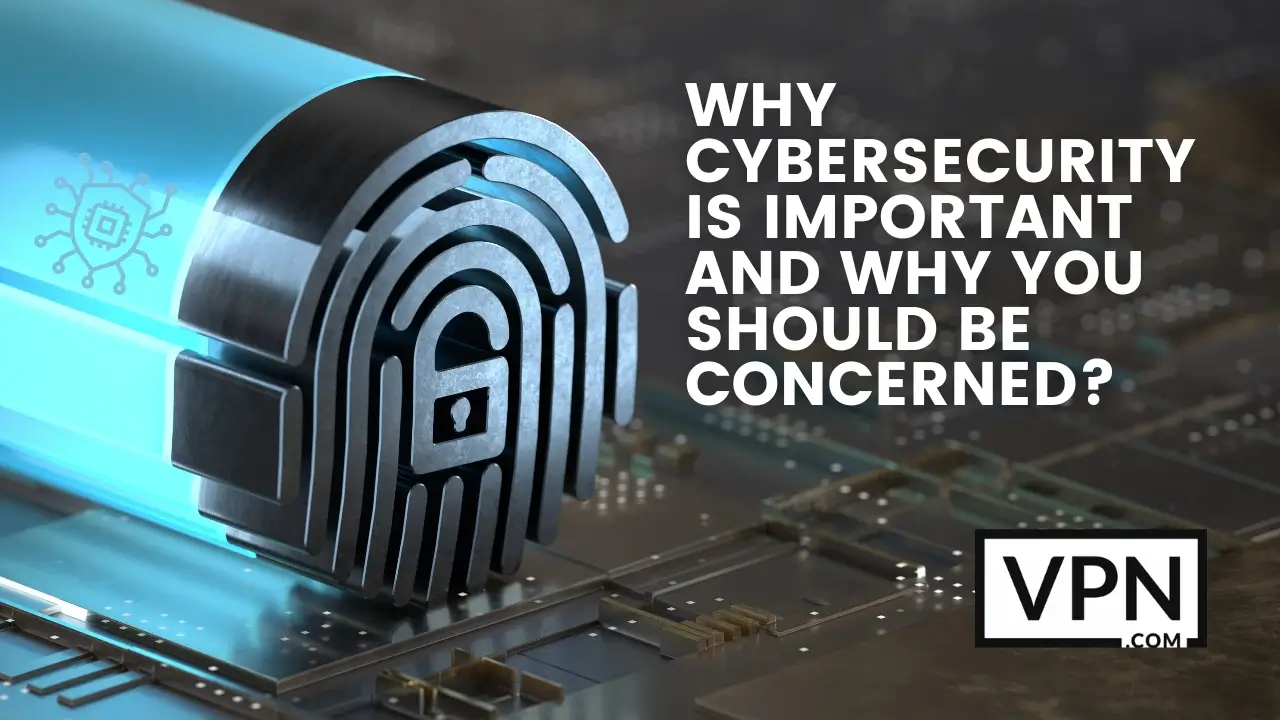
Why is cybersecurity important? Cybersecurity is an ever increasing field of importance in this day and age. Cybersecurity involves ensuring both digital and physical safety, with the overall goal of keeping computers, networks, and data secure from unauthorized access or damage.
Cybersecurity is critical to protecting vast amounts of personal, corporate, and government information stored on devices ranging from laptops to cell phones. As technology continues to advance and pervade more aspects of our daily lives, it has become fundamental to protect yourself, your family, and your business from Internet threats—cybersecurity is a key component in this effort.
Cyberattacks are becoming even more sophisticated every day; therefore, it is necessary for everyone to invest in proper cybersecurity measures such as backing up important files regularly, using strong passwords, using two-factor authentication when available, keeping software updated with relevant security patches in order to maximize the protection of online assets.
Understanding the importance and benefits of Cybersecurity should be given a top priority for those that are venturing into our ever changing digital age.
Importance Of Cybersecurity In The Current Digital Age
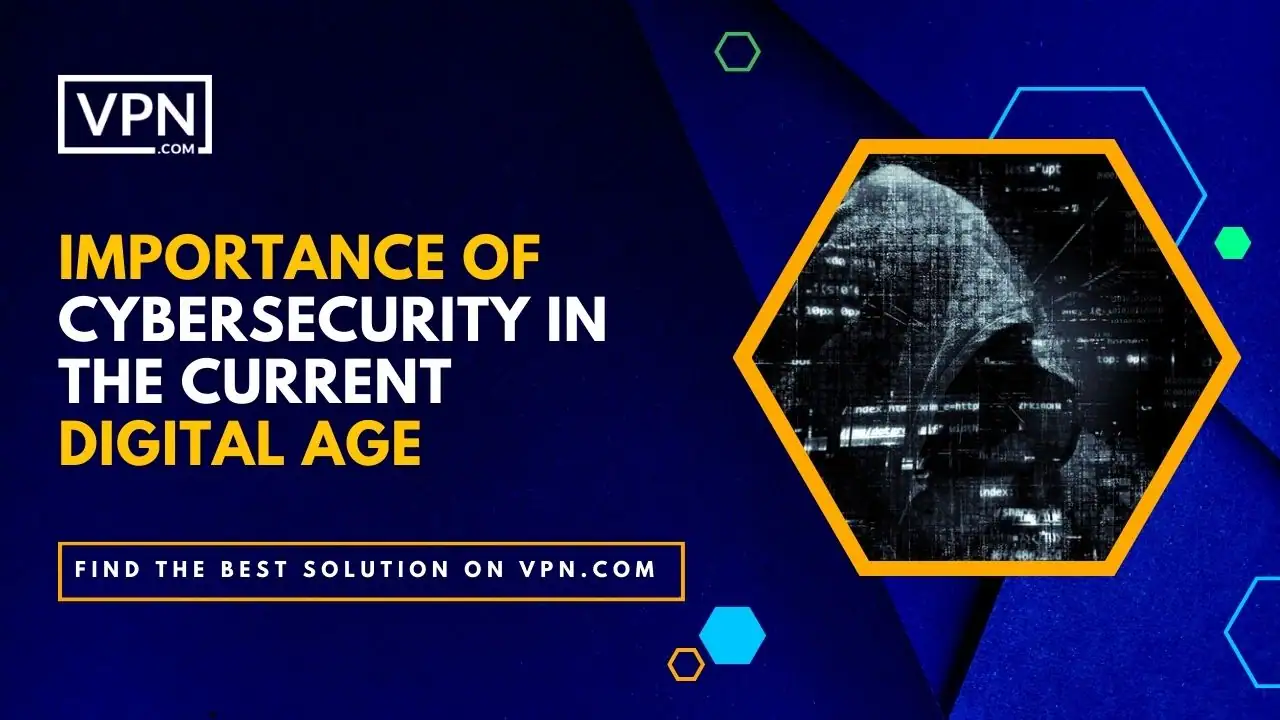
In today’s modern civilization, technological progress has accelerated substantially during the past few years. The exponential growth of internet activities such as shopping, banking, communication, and entertainment has dramatically simplified our daily life.
Regrettably, as our reliance on technology has increased, so has the possibility of cyber attacks on our gadgets and data. To guarantee that sensitive information remains secure, it is essential to be aware of potential risks and up-to-date on cybersecurity precautions. The real question, why is cybersecurity important?

Get Started w/ NordVPN Today
- Top-rated VPN for OS unknown
- Ultra-fast speed in US in 2024
- Save 69% off with VPN.com Discount
- Plans starting at $2.99/month
GUARANTEE
Protecting Personal Information
Cyber attacks on individuals have become increasingly widespread, leading to a rise in cases of identity theft. Individuals making secure online transactions should be wary; even the largest corporations have found themselves vulnerable to data breaches that can potentially expose personal information.
Cybercriminals employ a variety of methods to obtain sensitive information about victims, ranging from phishing emails to sophisticated malware. The consequences of identity theft can be devastating, both financially and emotionally. Why is cybersecurity important?
Protecting yourself from cyber criminals is essential if you want to ensure your personal data is not compromised by malicious actors. Taking steps such as using strong passwords and two-factor authentication can go a long way toward keeping your personal information safe.
Protecting Business Information
Cyber attacks on businesses are increasingly common with hackers employing a variety of methods to target unsuspecting companies. From ransomware to phishing scams and malware, the risks posed by these cyber threats can include the loss of sensitive data or intellectual property.
Data breaches can have disastrous consequences for businesses such as loss of revenue, expensive litigation costs, and damaged reputations. The real question is, why is cybersecurity important?
Therefore, the importance of protecting sensitive data and securing intellectual property cannot be overstated; without taking proactive measures businesses run the risk of experiencing significant losses from Theft, piracy or modification of their intellectual property which might cost them more than money in terms of reputation, customers and trust.
Protecting National Security
Over the years, cyber attacks on government agencies have become increasingly prevalent. Numerous government organizations, both nationally and internationally, have been targeted by malicious hackers and cyber criminals intent on breaching the agency’s security and obtaining confidential information.
Advanced methods and tactics used by skilled hackers to launch successful attacks are becoming increasingly more sophisticated, making it hard for even highly secured systems to keep information safe from intruders.
Furthermore, these attacks can sometimes lead to destabilization within a government or create wide-reaching implications that may disrupt global relationships.
Although many nations are attempting to put measures in place to mitigate these risks associated with cyber warfare, a coordinated approach is necessary to ensure that no agency falls victim to malicious cybercriminals looking to cause extensive disruption in the digital world.
Why Is Cybersecurity Important In Business?
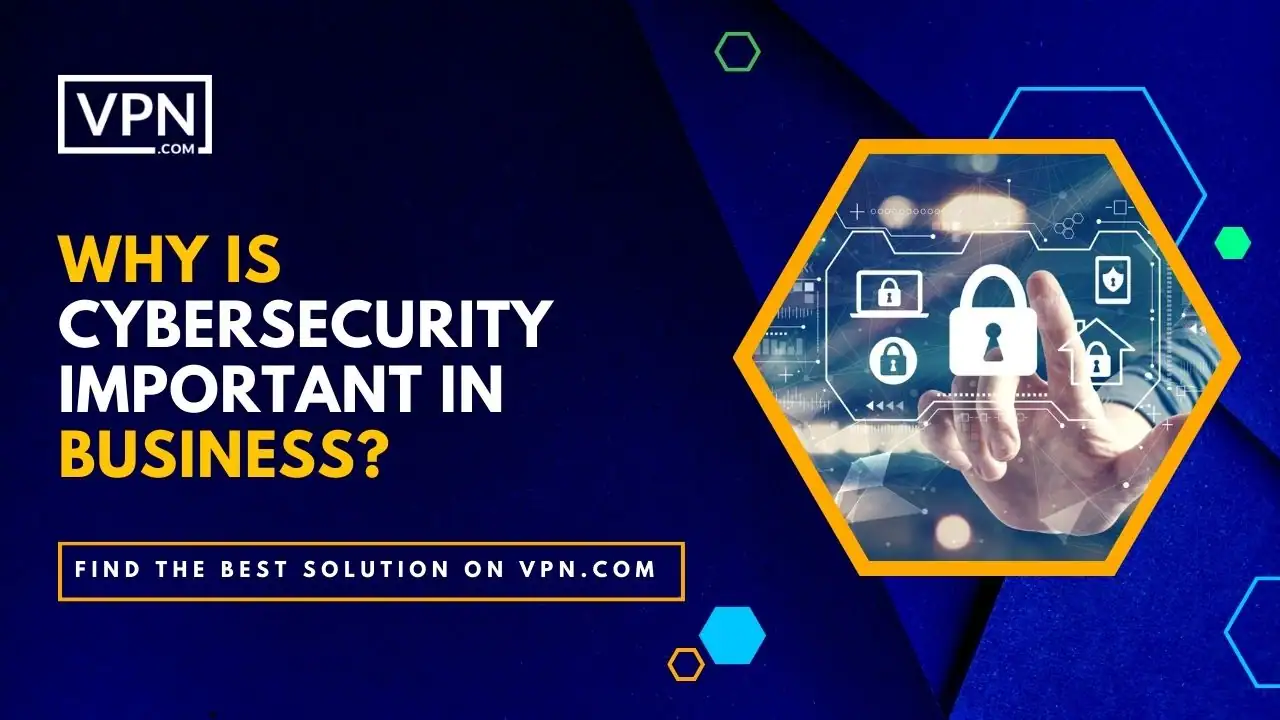
Explain why cyber security is crucial for modern businesses.
As a third benefit, the cyber defense can save costs.
The Importance and benefits of Cybersecurity and finally, compliance rely heavily on a secure network.

Get Started w/ NordVPN Today
- Top-rated VPN for OS unknown
- Ultra-fast speed in US in 2024
- Save 69% off with VPN.com Discount
- Plans starting at $2.99/month
GUARANTEE
Impact Of COVID-19 Pandemic
The duration of the pandemic has brought about many changes, one of which is a growing remote workforce. Companies have had to face the challenge of learning how to maintain their operations while many employees are working from home.
This shift was made with caution, as companies have had to consider potential risks associated with remote work, such as data security and potential communication breakdowns. Despite these worries, businesses have been developing strategies for transitioning to a remote infrastructure as best they can.
On top of this transition within the workforce, the pandemic has also caused an increase in online activities due to social distancing rules. Social media use has seen steady growth and ecommerce websites are booming as people shift toward digital platforms for buying and selling products.
Covid-19 has emphasized the need for increased reliance on technology, not only for productivity reasons but also to maintain social connections during this time of physical isolation. Why is cybersecurity important?
Cybersecurity Measures
Installing technical safeguards such as firewalls, anti-virus software, and encryption is crucial for any firm seeking to protect its data and systems against cyberattacks. But it’s not just technology that can provide security — administrative measures also play an important role in reducing risks.
Training programs for employees on topics like benefits of cybersecurity can be hugely beneficial when it comes to minimizing the vulnerability of systems.
These courses can help employees understand how to identify potential risks through practice like email phishing, password best practices and other methods of threat detection.
As cyberattacks become more frequent and sophisticated, proactively training staff members is a great way to stay ahead of the curve and create a stronger security foundation for businesses.
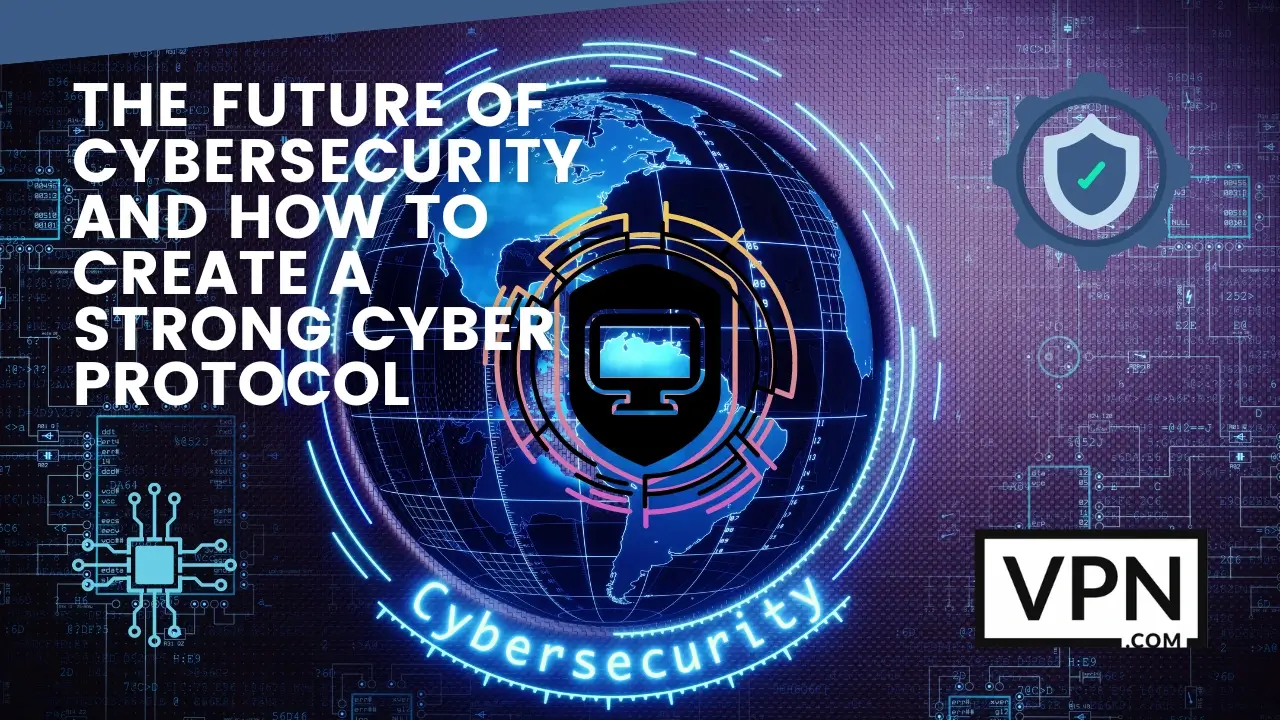
The Future Of Cybersecurity
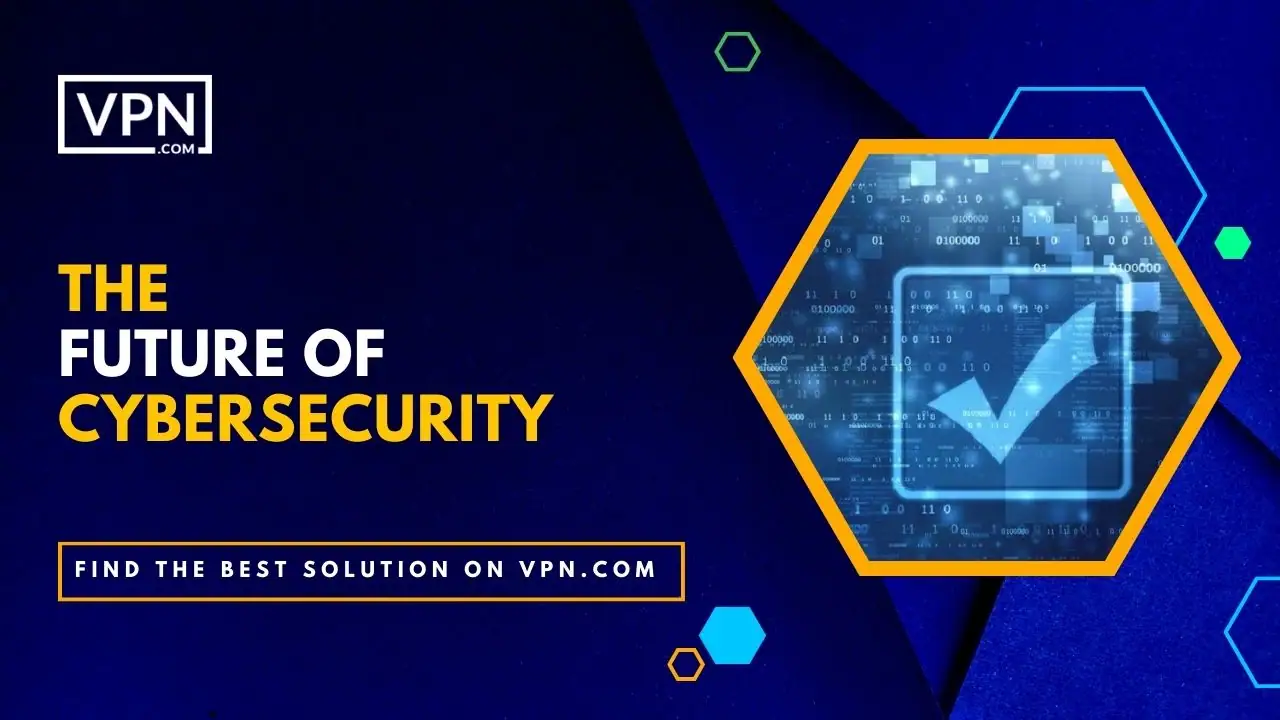
A great number of people and companies are concerned about the trajectory of cybersecurity in the coming years. The ways in which hackers might take advantage of weaknesses in computer systems are always evolving along with new technologies. Individuals and businesses alike need to make it a priority to keep current on the most recent cybersecurity dangers and the best ways to defend against them in order to maintain a competitive advantage.
The proliferation of internet-connected devices will likely be one of the most difficult obstacles to overcome in the field of cybersecurity in the foreseeable future. There is an increase in the number of opportunities for hackers to obtain access to sensitive data or manipulate vital systems as more and more things become connected to the internet.
These things range from cars to refrigerators. Strong passwords and regularly updated software are two of the best ways for individuals and organizations to safeguard their networks and ensure the safety of their connected devices as the number of interconnected gadgets continues to grow.

Get Started w/ NordVPN Today
- Top-rated VPN for OS unknown
- Ultra-fast speed in US in 2024
- Save 69% off with VPN.com Discount
- Plans starting at $2.99/month
GUARANTEE
Frequently Ask Questions
What is cybersecurity, and why is it essential?
Cybersecurity protects networks, systems, and programs against digital attacks. These cyber attacks are becoming more common in our current digital age where more and more of our valuable information is stored online.
It is of the utmost importance to protect ourselves against potential threats in this new technological age as digital security breaches can have devastating consequences ranging from stolen financial information to identity theft.
Facing these threats requires sophisticated tools, implementation of preventive tactics and an understanding of emerging technologies like artificial intelligence to protect us against cyber attacks.
Without proper cybersecurity protection measures in place, we leave ourselves vulnerable to those who wish to exploit our networks for malicious intent.
What are the Risks Associated with Cybersecurity Breaches?
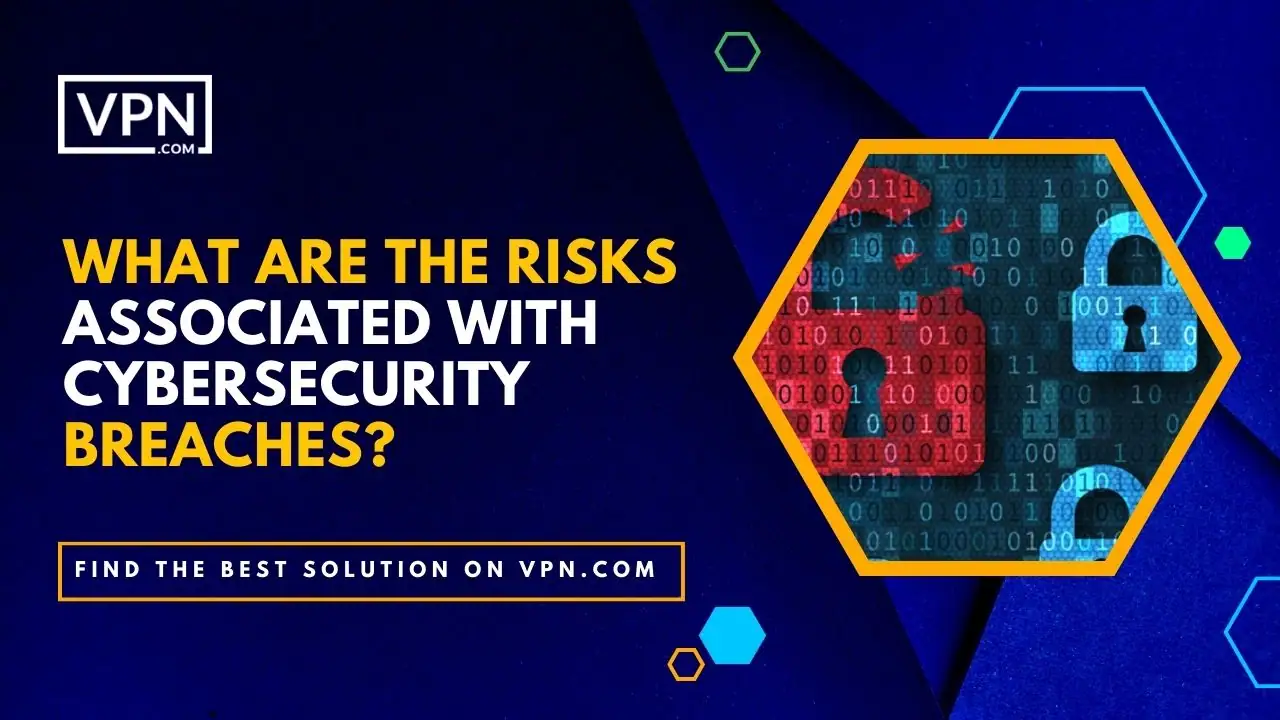
Cybersecurity breaches can be incredibly damaging. Everything from a business’s customer data to its operational secrets can be exposed during a cybersecurity breach, resulting in hefty fines and compromise of confidential information.
It is therefore essential for any organization that deals with sensitive data or proprietary information to invest in secure cybersecurity protocol.
Establishing robust strategies for preventing cyber attacks will help organizations protect themselves from lengthy investigations, financial losses, compromised brand reputation, and other consequences associated with these breaches.
Understanding the risks associated with cybersecurity breaches can unlock tremendous value as companies learn how to mitigate vulnerabilities and improve their overall security profiles.
What are the risks of cyber attacks on personal information?
Personal data breaches, which involve cyber-attacks on an individual’s personal information, are becoming increasingly more common. As privacy is of utmost importance for people in the online world, it is important to be aware of what personal data breaches can entail in order to secure your data as best as possible.
Such breaches can occur when hackers access a person’s account or any digital storage space with sensitive information. Examples of this include identity theft, credit card fraud and hacking into bank accounts.
The repercussions resulting from a successful data breach attempt can be far-reaching and devastating – not only to the individual but also potentially to those around them. Everyone must therefore take the necessary precautions to safeguard their sensitive data.
This could include strengthening passwords, regularly reviewing security settings and being wary of suspicious emails containing links or attachments they were not expecting.
What are the Risks Associated with Identity Theft?
Identity theft is an all-too real problem in the digital age. With hackers finding increasingly innovative methods of obtaining confidential personal data from unwitting victims, it is becoming more important than ever to take steps to protect yourself from identity theft.
Though criminals might use traditional techniques such as stealing wallets or rummaging through garbage, new technologies like phishing emails and malicious websites allow them to steal information with far less effort.
Effective steps include always logging out from online accounts securely, avoiding easily guessed passwords, not clicking links sent to unknown sources and frequently scanning computers for viruses and malware.
Data protection is especially important when someone carries out financial transactions online on their credit/debit cards or via other payment gateways. It’s essential that we all exercise caution when providing our personal information online – if we fail to do so, the consequences can be severe, ranging from fraudulent purchases to tarnished reputations.
What is the Importance of Secure Online Transactions?
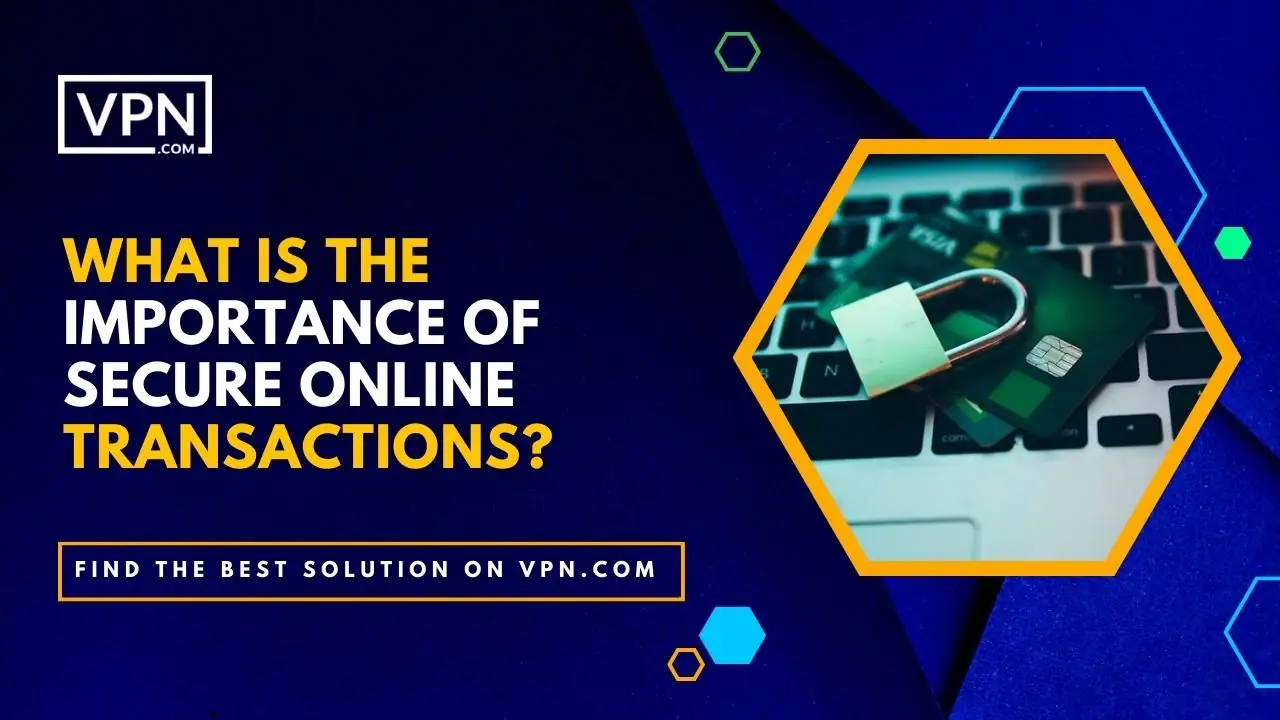
With more and more people shopping and banking online, the need for secure online transactions is more important than ever. Unfortunately, the risks associated with insecure online transactions are very real.
A lack of proper authentication can lead to identity theft and financial fraud, while inadequate encryption can allow hackers access to sensitive data. Fortunately, businesses can take measures to safeguard themselves and their customers.
Methods such as two-factor authentication, where passwords are only accepted after an additional code is entered through a third party device such as a smartphone, help to ensure secure online transactions.
Organizations must also constantly update their security protocols by implementing the strongest encryption standards available today. In today’s digital age it is just not enough to have customers guarding their own safety; companies must do their part in protecting those who rely on them through secure online transactions.
What are the risks of cyber attacks on businesses?
Cyber attacks on businesses involve tactics used by malicious hackers to gain unauthorized access to a company’s digital data. Viruses, malware, phishing scams, ransomware, and denial of service (DOS) attacks are common examples of these tactics. Protecting sensitive data from these threats is essential for any business that utilizes online platforms as a part of their operations.
Without proper security measures in place, threatening actors could gain access to vital information such as financial records or customer personal data, resulting in significant repercussions down the line. As such, companies must prioritize cyber defense strategies in order to ensure their data and users stay safe from malicious forces.
What are the Consequences of Data Breaches for Businesses?
Data breaches are a real threat to businesses, as they can have a significant financial and practical impact. A data breach involves the illegal or unauthorized acquisition of sensitive information about people, customers, or products.
Examples of data breaches for businesses include hacking of online accounts, stolen product details and customer records, physical theft of secure documents and computer-based attacks such as ransomware.
Organizations need to take extra care with sensitive information like trade secrets and confidential records related to employees. Risks associated with the loss of sensitive data include legal action due to mishandling personal information, suspension of activities by government agencies and brand-damaging public relations issues.
Moreover, reputational damage from a breach can lead to decreased customer trust resulting in a loss in sales or services. Overall, protecting sensitive data is essential for any organization in order to maintain its business operations and financial stability.
What is the Importance of Protecting Intellectual Property?
Theft of intellectual property is a major problem that can have disastrous effects, such as financial loss and tarnished reputation. It is important for companies to take steps to secure their intellectual property in order to protect their data and resources.
There are many different methods hackers use to target intellectual property, including malware attacks, phishing emails, social engineering, spoofing websites, and more. Without proper security infrastructure set up, increasing the risk of invasion – both accidental and planned – becomes increasingly easy.
Therefore, it is essential for organizations both large and small to be prepared with an effective security protocol that incorporates various tools such as segmentation networks, firewalls, encryption tools, antivirus and malware signature detection software. This will decrease the chance of hackers being able to access and exploit private information.
Why is protecting critical infrastructure important?

Critical infrastructure is the base of any society – it is the functioning systems that are essential to everyday life, such as energy, water, telecommunications and banking networks.
Ensuring these core services function reliably and securely is absolutely critical. That’s why protecting this infrastructure from cyber attacks has become so incredibly important: if they are not secured, criminals or foreign hackers can exploit the weaknesses of the system and cause IT interruptions with huge consequences for businesses, citizens and governments around the world.
These cyber crimes can cause power outages and disruption to transportation services as well as jeopardize financial data, public health information and strategies related to national security.
The world has already experienced significant cyber attacks that resulted in full-scale ransomware infestations, online fraud and major data breaches. It’s clear now more than ever that we need better protection for our vital infrastructure.
What are the Risks Associated with Cyber Attacks on Critical Infrastructure?
Cyberattacks against vital infrastructure can have far-reaching effects. The attacks can cause severe disruption to essential services and using ransomware, attackers could blackmail organizations into handing over large sums of money.
In extreme cases, a cyber attack could threaten public safety, by impacting government systems that control power grids, hospitals and banking networks, for example. As such, the importance of protecting critical infrastructure from these types of attacks cannot be understated.
This is why organizations need to invest in comprehensive security measures such as the implementation of firewalls and the introduction of strict protocols regarding employee access control. By taking these proactive steps, they will be better placed to identify suspicious activity at an early stage and avoid costly consequences further down the line.
What are the Measures to Protect Critical Infrastructure?
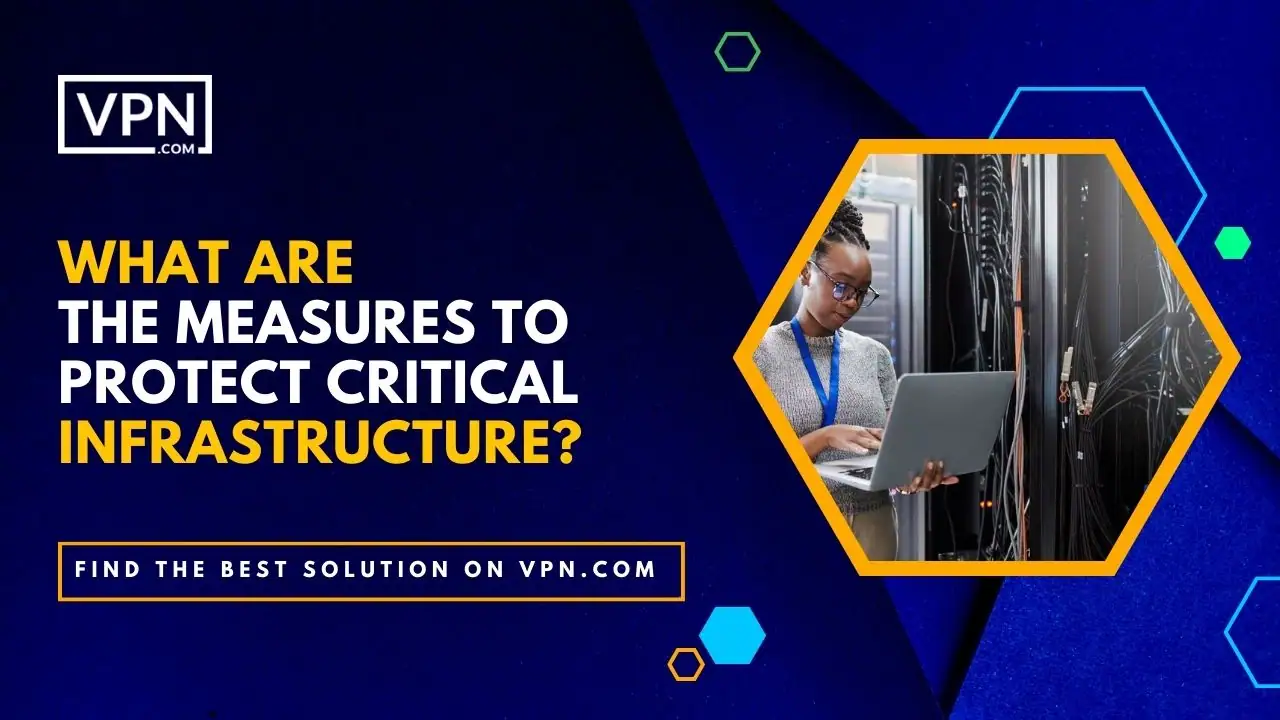
Securing our critical infrastructure requires a holistic approach that incorporates both technical and administrative solutions. Technical measures for a comprehensive defense should include encryption, authentication, automated surveillance systems, biometrics and cryptographic communication measures – among many other technologies.
Administrative solutions include security audits and employee background checks to reduce the risk of insider threats. Collaboration between the public and commercial sectors strengthens this technical-administrative team effort.
By pooling together resources such as personnel, information and technology capabilities, stakeholders can better equip themselves to anticipate and prevent cyber-attacks while also reducing damage post-incident.
It is clear that ensuring the safety of critical infrastructure requires a joint commitment from various parties in order to establish robust defense strategies on both fronts.

Get Started w/ NordVPN Today
- Top-rated VPN for OS unknown
- Ultra-fast speed in US in 2024
- Save 69% off with VPN.com Discount
- Plans starting at $2.99/month
GUARANTEE
Conclusion
With the rise of cyber threats, there has never been a more critical time to ensure the best levels of cybersecurity are in place. We not only need to protect our personal information but also the information of our businesses as well as national security; with more remote working and sharing sensitive data through virtual networks, now more than ever it’s vital for individuals, businesses and government to address this very real threat seriously.
It’s important that we have proper protection measures such as effective antivirus software, firewalls and multi-factor authentication in place so that we can protect ourselves against malicious actors attempting to gain access or disrupt our data or networks.
Cybersecurity is a shared responsibility and by working together we can create safe online practices and ensure everyone is aware of what best practices mean when it comes to protecting ourselves from cybercrime during this pandemic.
Customer Reviews for NordVPN: In-Depth Review, Tests, and Stats

Connection issues with MLB.TV
May, 2 2023

Prompt customer service
May, 6 2023

I would highly recommend
December, 15 2023



